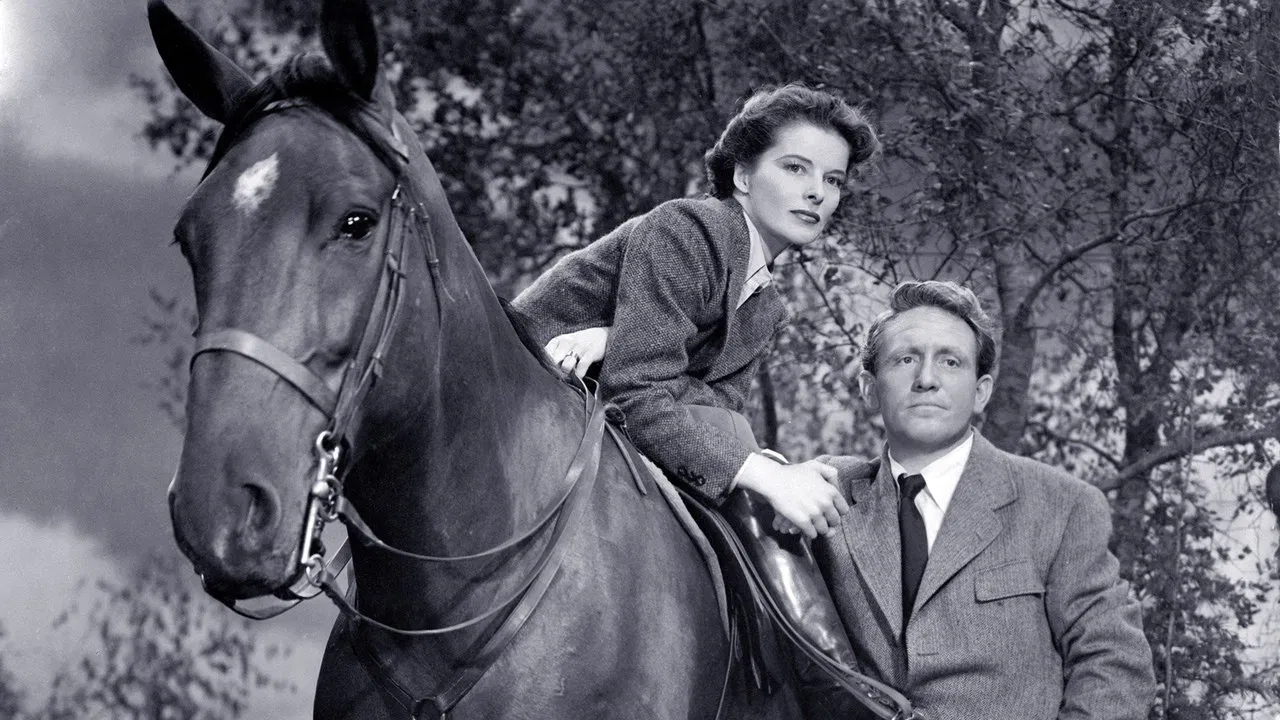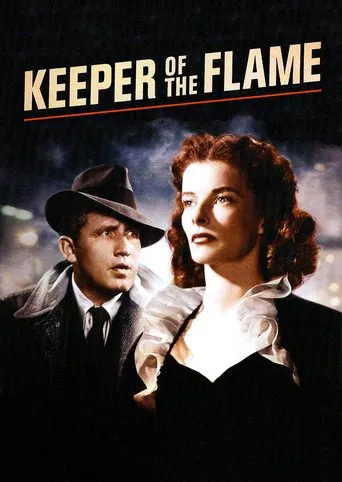

In aiming at political seriousness this Tracy/Hepburn vehicle proved to be something of a misfire for all concerned. The story is that old chestnut about the hero who had feet of clay or in this case an American icon killed in an automobile accident who is revealed to be a Fascist. It's got one of the few really bad Katharine Hepburn performances, (admittedly she is saddled with some terrible material), and Tracy isn't much better as the journalist who sets out to write the man's life story, (he get glummer as the picture progresses as if it's just dawned on him what he's let himself in for). Cukor directed and Donald Ogden Stewart did the screenplay but this is no "Philadelphia Story" but a rather turgid drama masquerading as a thriller but one minus the thrills. If you want to be preached at, go to church where even the dullest sermon would be a lot more fun than this.
... View MoreFirst saw this as a kid in the 50's and was fascinated and just a little frightened by it. The theme, public vrs private personae, was already well know to me, primarily through Joe McCathy's rise and fall, but also from movies like Meet John Doe and Face in the Crowd, while its tone echoed everything from Ace in the Hole to Dragonwhyck: both dark and manic. I even got the Lindbergh allusion because I'd seen numerous newsreels of Lindbergh's speeches, with their hints of racism and fascism, so different from the quintessential American Individualism of Jimmy Stewart's portrayal. No one's mentioned the reference to Alvin York, perhaps because of Gary Cooper's portrayal of a York who consciously rejected what Lindbergh and Forrest embraced.What frightened me was not the specifics of Forrest's 'secrets', the addiction to power, the attraction to fascism, but the way the movie evoked the darkness that resides, hidden and lurking, in all of our souls and how easily that darkness can be unleashed and amplified through the blindness of hero-worship and projection.Haven't seen it since, not until it was on TMC tonight and I was very curious to see if it was the movie I remembered. For the most part it was and, in ways, was even better. The script, performances and cinematography were flawless, up until the last scene with its intrusion of melodrama and a reverse Deus ex Machina. That scene was totally at odds with rest of the movie, comes close to spoiling the entire movie and I suspect it was edited out of the version I saw as a kid; I certainly didn't remember it.Even so, it's an great movie technically and well worth a single viewing; depending on taste, perhaps a second or third. Just scrap the ending.A footnote: Lindbergh, an honest demagogue, and McCarthy, a crooked demagogue, both failed to become kingmakers largely because, while we may idolize 'heroes' and seek 'heroes' to idolize, we don't trust them and, when it comes down to it, we prefer our several hundreds of millions of versions of messy individualism over the comfort and certainty of any ideology.
... View MoreWhen I was in high school a survey came out that the Baby Boomers didn't have heroes and that was considered a bad thing. I still think it is a very, very GOOD thing! Beware of the people you put up on a pedestal. Beware of people who care more about power than the truth. It is, sadly, extremely easy to manipulate the public, especially in times of turmoil or misery. Those are the lessons of this movie in a dramatic version of power corrupts and absolute power corrupts absolutely.I found this movie to be deeply creepy because it was so plausible--the kids who voluntarily set up action groups they didn't know were going to be used for evil, the adults who wanted to get in on the action, the stirring up of hatreds, the impulse to not tell the public to "protect" them. Haunted houses and ghouls with chainsaws are nothing to me compared to the idea of people like this succeeding. The ideology doesn't matter. What matters is the power grab.
... View MoreIn the early days of the 1940's, America was being inexorably drawn into World War Two. During that time, there was a great national Isolationist movement which sought to keep America out of the global conflict. The strongest and perhaps the most influential figures which arose were America's heroes. Among them was famed aviator, Charles Lindbergh. Having visited Germany prior to the invasion of Poland, was convinced America could not win a war against Germany. This movie called " Keeper of the Flame " represents the views of the late Robert Forest, a rich industrialist, popular and civic leader who although groomed himself as a true American patriot, was in fact a 'sleeper' Fascist. Because he believed Forest was an American hero, Steve O'Malley (Spencer Tracy) a famous war correspondent, returns home. His mission is to write the biography of Forest. Instead, as he begins writing the story, he discovers that Forest's wife Christine (Katharine Hepburn) and her family is hiding a family secret which everyone wants to keep buried with the deceased. With Richard Whorf, Margaret Wycherly and Forrest Tucker in supporting roles, this mysterious film quickly becomes a spy vs spy drama. One which Tracy and Hepburn play to the hilt. Due to her association with her husband, I could not help but see Bogart in this movie. Nevertheless, this is a dark film which easily explains the title. Recommended to anyone wanting to recall why America eventually went to war. ****
... View More